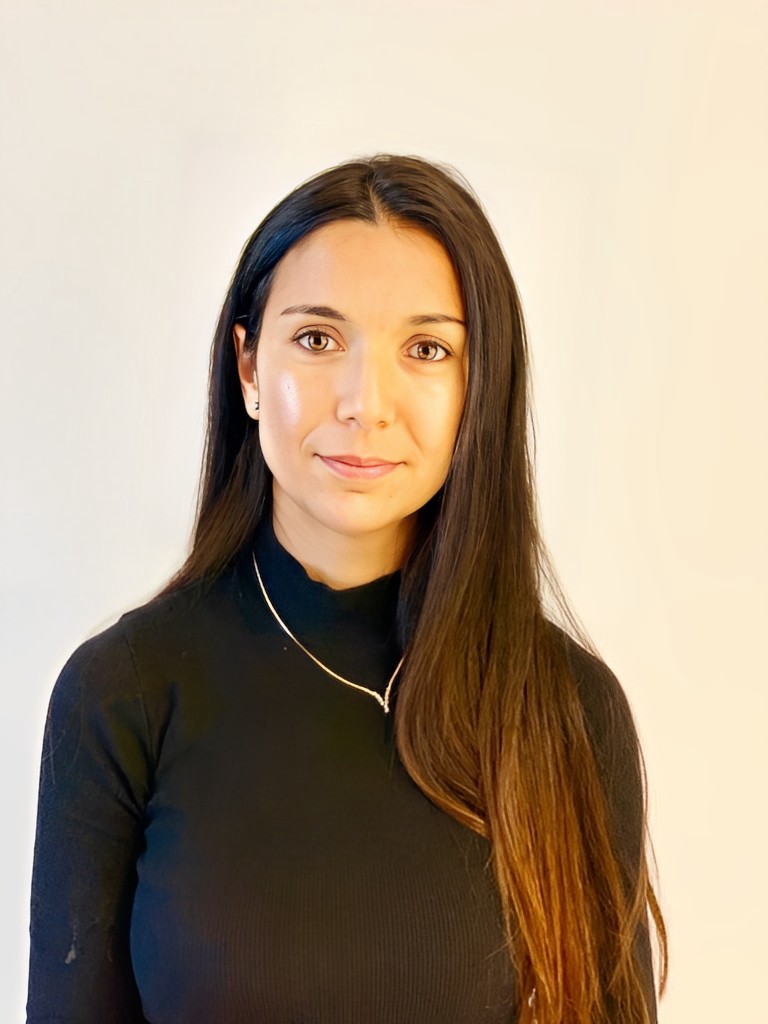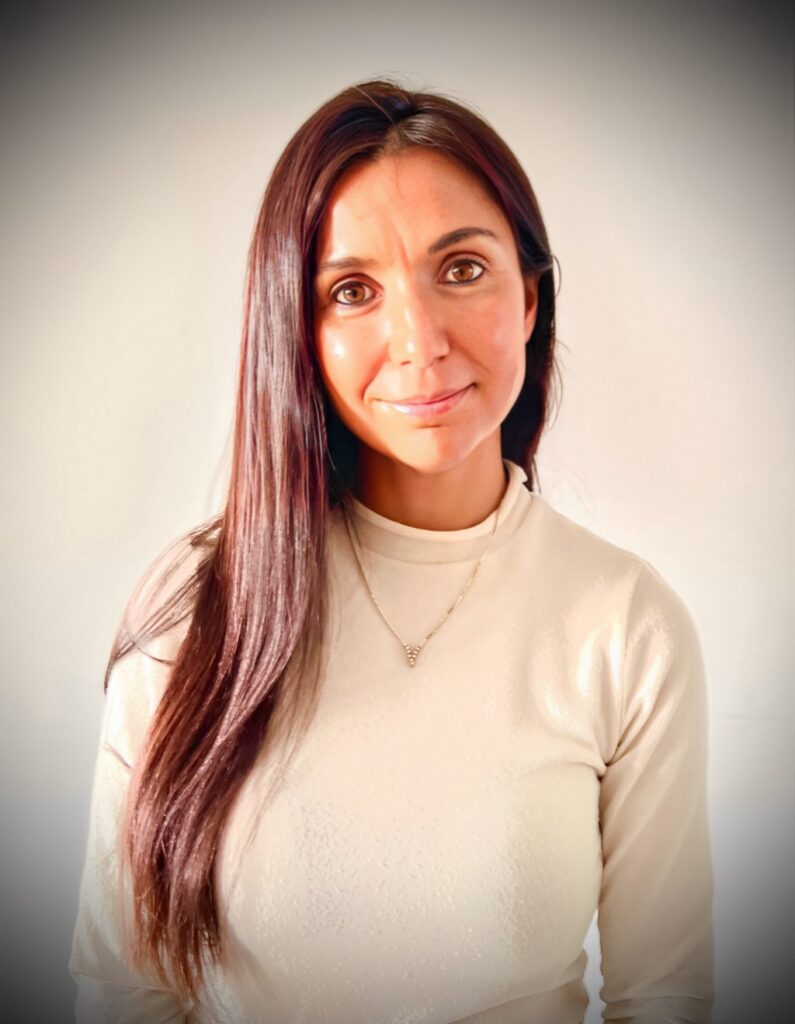The New Portrait Of Leadership: Veronica Llorca Smith Of Leaders For Good On Strategies to Shape Yourself Into A Modern Masterpiece
An Interview with Karen Mangia
Excellent communication: when you see Tim Cook speak at the annual Apple conference, his presentation is impeccable: it’s clear, concise and supported by incredible and compelling visuals. Focus on 3 key ideas and make it crystal clear for your team.
We are living in the Renaissance of Work. Just like great artists know that an empty canvas can become anything, great leaders know that an entire organization — and the people inside it — can become anything, too. Master Artists and Mastering the Art of Leadership draw from the same source: creation. In this series, we’ll meet masters who are creating the future of work and painting a portrait of lasting leadership. As part of this series, we had the pleasure of interviewing Veronica Llorca-Smith.
Veronica Llorca-Smith is a DEI Consultant at Leaders for Good and a public speaker at Speakers Institute Corporate. She has over 18 years of leadership experience working in business and people development for Fortune 500 companies like Apple and Estée Lauder. She has spent her entire career in Asia (China, Hong Kong and Australia) and has extensive expertise in managing large culturally diverse teams in the Region. She speaks 6 languages fluently and is a top advocate on diversity and inclusion on Linkedin. She also founded her own publication on Medium called A Smiling World.
Thank you for joining us. Our readers would enjoy discovering something interesting about you. What are you in the middle of right now that you’re excited about personally or professionally?
I am moving back to Hong Kong, my home country after one year involuntarily locked abroad, in Australia due to COVID restrictions. It was a year full of challenges but also new opportunities and I look forward to finally going back home after a wild personal and professional adventure down under!
We all get by with a little help from our friends. Who is the leader that has influenced you the most, and how?
My biggest inspiration is my mum, a woman who became a widow at 42 and started her own business, a small restaurant in the Canary islands with 600 euros in her pocket. She’s the living image of resilience and positivity.
In terms of global leaders, I have always been inspired by Obama: his ability to bring people together, his charisma, his energy. He humanized the role of President of the USA and introduced a new type of leadership in politics. He gave people hope by proving that our similarities are stronger than our differences.
I am inspired by his ability to bring people together and use our differences as our strengths.
Sometimes our biggest mistakes lead to our biggest discoveries. What’s the biggest mistake you’ve made as a leader, and what did you discover as a result?
My biggest mistake as a leader in my early career was to believe that leadership was about me, when in fact it’s about the people in front of you. I used to focus too much on myself: my style, what I was saying, when in reality the epicenter of leadership is the people you are leading, what matters to them and motivates them. As a leader, you have to gravitate around them: they are the protagonists.
How has your definition of leadership changed or evolved over time? What does it mean to be a leader now?
It has really been an evolution from managing to a more holistic leading and inspiring. I used to think leading was about effectively guiding a team towards a specific goal. Now, leading for me is about inspiring, unlocking the true potential of people, their superpowers and reaching new heights as a team. My role as a leader is to be a catalyst of talent.
Success is as often as much about what we stop as what we start. What is one legacy leadership behavior you stopped because you discovered it was no longer valuable or relevant?
I used to project an image of unconditional strength even if deep down I had moments of self-doubt or weakness. With time, I realized that part of leading is being vulnerable and letting your team know when you are struggling, when you don’t know something, when you are making mistakes. Humanizing leadership is crucial in order to genuinely connect with your team.
What is one lasting leadership behavior you started or are cultivating because you believe it is valuable or relevant?
Active listening. As simple as it sounds, listening is a very difficult skill to master as we are often focusing more on what we want to say than what other people are telling us. When we truly listen, both verbal and non-verbal language, we learn to understand, we become more compassionate, we are able to create a deeper connection and ultimately we create trust.
What advice would you offer to other leaders who are stuck in past playbooks and patterns and may be having a hard time letting go of what made them successful in the past?
It’s important to have an open mindset and realize that what made you successful in the past is not what will make you successful in the future. Prioritizing human connections is a must in leadership. P&L and monthly reports are important, but creating meaningful and genuine connections with your teams, both collectively and individually is what will unlock the true power of teamwork. A coffee chat with your team member goes a long way!
Many of our readers can relate to the challenge of leading people for the first time. What advice would you offer to new and emerging leaders?
Be humble and open: being a great leader doesn’t mean you know everything. It means you know how to push great ideas forward, even if it’s not your own. It doesn’t mean you are the smartest person in the room, but you are able to leverage the team’s IQ and skills. For new leaders it’s important to leave your ego on the side and understand that the sum of a team is greater than its parts.

Based on your experience or research, what are the top five traits effective leaders exemplify now? Please share a story or an example for each.
Excellent communication: when you see Tim Cook speak at the annual Apple conference, his presentation is impeccable: it’s clear, concise and supported by incredible and compelling visuals. Focus on 3 key ideas and make it crystal clear for your team.
Human leader: Obama is a great example of how to humanize politics and leadership. You see him genuinely engage with the crowds, hug the White House staff, talk to children. He was the first USA President to have in-house photographies of intimate moments displayed on social media on a regular basis to portray the human side of leadership.
Storyteller: great leaders tell great stories. The ability to convey a message through a personal story or a lived experience is a key skill for leaders to fully engage and inspire their team. Simon Senek is excellent at sharing personal stories to illustrate his points. He recently talked about his personal burnout experience and how he dealt with it to raise awareness on mental health.
Leader with empathy: a great leader needs to have compassion for their team and understand that we all go through personal and professional challenges. During COVID for instance, as a leader it was critical for me to understand what my team members were going through at a personal level to be able to support them and create a safe environment for them to continue to thrive.
Inclusive leader: in a world that is ever more interconnected, it’s critical for leaders to understand that we are all different and our differences are assets that make us stronger as a team. It’s important to embrace diversity as it enriches the conversation and helps drive innovation. Leaders should always seek to bring fresh eyes and perspective to the team. A leader’s job is to bring all voices to the conversation and make sure they are heard and valued.
American Basketball Coach John Wooden said, “Make each day your masterpiece.” How do you embody that quote? We welcome a story or example.
Personally, I see every day as a new opportunity, a blank page to be filled with colorful stories. As a writer, I always start the day writing a story on Medium at down, before my children wake up. It’s my moment of creativity to set the tone for the day.
What is the legacy you aspire to leave as a leader?
I hope I can leave a legacy of positivity. As an amateur triathlete (I have completed over 100 races), I use a lot of sports psychology in my approach to leadership and a big part of it is believing in yourself: positive self-talk and building self-confidence is critical to succeed in work and in life and I hope everyone who has worked with me will take that away.
How can our readers connect with you to continue the conversation?
You can find me on social media:
Linkedin: https://www.linkedin.com/in/veronicallorcasmith/
Twitter: https://twitter.com/verollorcasmith
I am a writer on Medium: https://medium.com/@verollorcasmith and have my own publication A Smiling World: https://medium.com/a-smiling-world
You can check my website: www.veronicallorcasmith.com
Thank you for a meaningful conversation. We wish you continued success with your mission.
About The Interviewer: Karen Mangia is one of the most sought-after keynote speakers in the world, sharing her thought leadership with over 10,000 organizations during the course of her career. As Vice President of Customer and Market Insights at Salesforce, she helps individuals and organizations define, design and deliver the future. Discover her proven strategies to access your own success in her fourth book Success from Anywhere and by connecting with her on LinkedIn and Twitter.
The New Portrait Of Leadership: Veronica Llorca Smith Of Leaders For Good On Strategies to Shape… was originally published in Authority Magazine on Medium, where people are continuing the conversation by highlighting and responding to this story.
